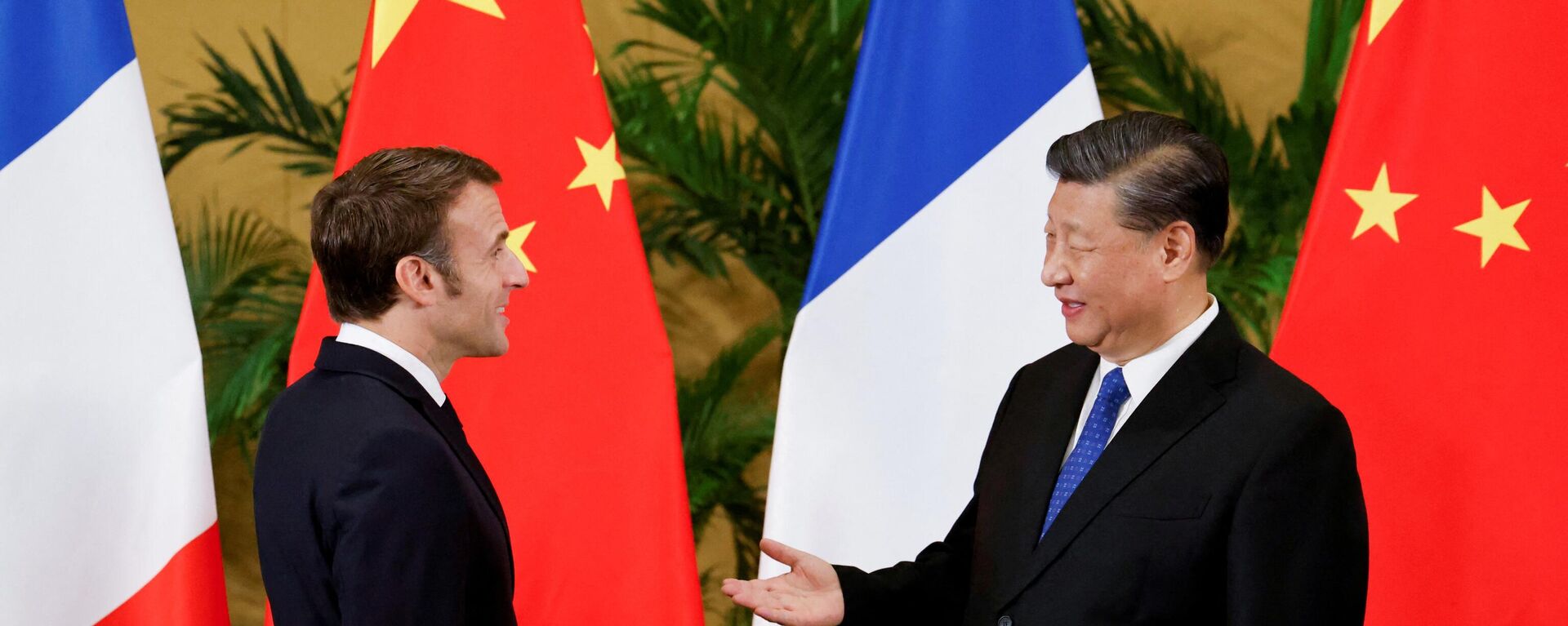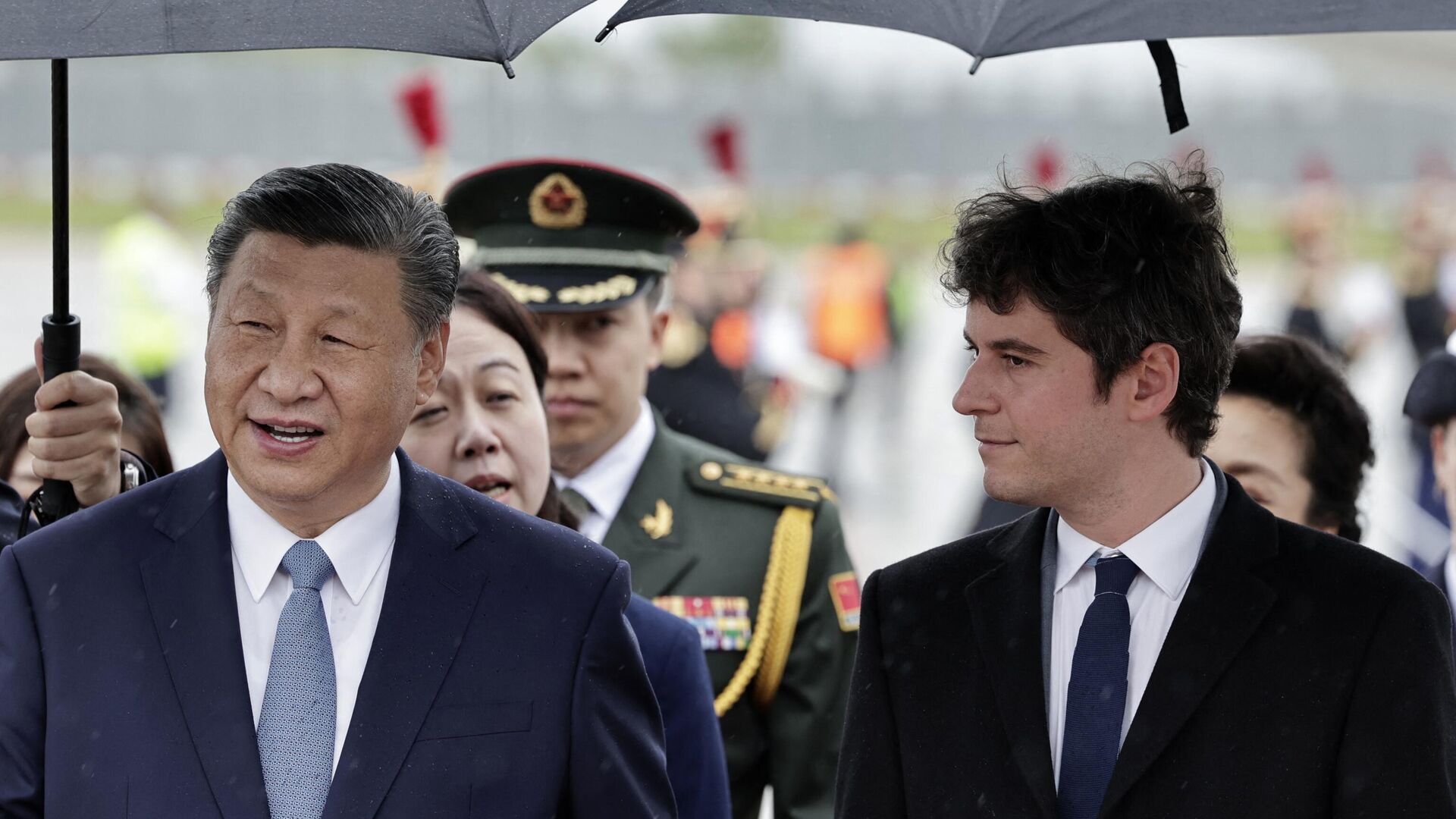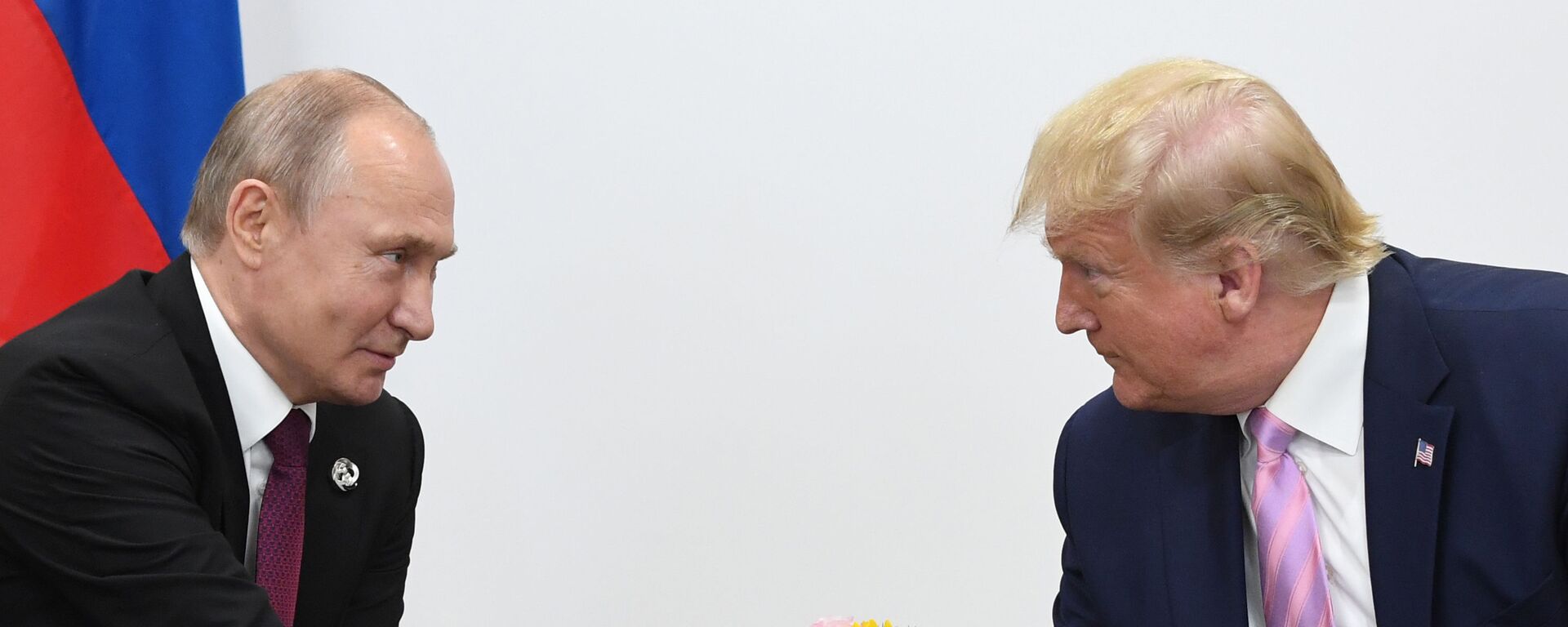https://sputnikglobe.com/20240506/chinese-president-visits-three-key-countries-during-trip-to-europe-1118281008.html
Chinese President to Visit Three Key Countries During Trip to Europe
Chinese President to Visit Three Key Countries During Trip to Europe
Sputnik International
An article in The New York Times suggests China shares skepticism towards US hegemony with some European countries, but the Asian power maintains positive cultural, economic, and historical ties as well.
2024-05-06T05:10+0000
2024-05-06T05:10+0000
2024-05-06T06:33+0000
china
viktor orban
serbia
france
hungary
xi jinping
multipolar world
emmanuel macron
charles de gaulle
european union (eu)
https://cdn1.img.sputnikglobe.com/img/07e8/05/06/1118279880_0:67:3072:1795_1920x0_80_0_0_6064b686ee256a6c291a2af74db8e748.jpg
“Xi Visits Europe, Seeking Strategic Opportunity,” declared the headline of a New York Times piece Sunday on the Chinese leader’s trip to the continent.Xi’s diplomatic visit to Europe – his first in five years – certainly comes during a period when the United States’ global leadership is in doubt. The US’ leveraging of coercive unilateral economic sanctions against nearly one-third of the world’s population has endangered the dollar’s position as the de facto global reserve currency, leading various world powers to seek alternatives.Countries throughout the Global South have chafed under the United States’ insistence they must follow its lead in isolating Russia after the launching of its special military operation in the Donbass. This phenomenon is observed vividly in North Africa, with a slew of nations ending military cooperation with the US and ejecting American troops.Even within Western Europe the United States’ image has taken a beating. NATO officials are scrambling to prepare for a possible future without the guiding role of Washington, fearing a second Donald Trump presidency could see the US cut funding or even pull out of the military alliance.Historical allies’ perception of the country seems permanently altered after the controversial real estate magnate’s chaotic time at the helm; one-third of Europeans now say the United States cannot be trusted while more than two-thirds say it is not a model democracy.The New York Times documents various reasons for shared skepticism towards the United States among China and the three countries Xi plans to visit during his trip. France has long sought to resist US influence over its affairs, with revered statesman Charles de Gaulle famously refusing to place French troops under NATO command. Current President Emmanuel Macron has advocated for “strategic autonomy” in European affairs, positioning the EU as a third major power independent of China and America.Hungary, too, has challenged US influence over its internal affairs, rejecting criticism of its self-declared “illiberal Christian democratic” Prime Minister Viktor Orban.Opposition towards the United States is perhaps strongest in Serbia, where the lasting impact of NATO’s 1999 bombing of Belgrade is still felt. Increased rates of cancer and birth defects persist decades after the alliance’s use of depleted uranium in its assault on the capital city. The US’ bombing of Beijing’s embassy in Belgrade during the attack is still commemorated regularly by both China and Serbia.But beyond these countries’ shared objection to US dominance, there are also strong cultural, economic and historical links. Beijing’s relations with Serbia extend back to the days of the former Yugoslavia, when both countries shared an egalitarian socialist vision. Hungary became the largest recipient of Chinese direct investment in 2015, with Orban enthusiastically participating in Belt and Road infrastructure projects.French-Sino relations, meanwhile, go back to the Middle Ages; the Chinese monk Rabban Bar Sauma was hosted by France’s King Philip IV during a diplomatic trip by the Uyghur emissary throughout Europe. Today, both countries are joined together by their shared status as G20 economies, members of the UN Security Council, and major regional powers.“When all countries pursue peaceful development, the future of humanity will be full of promise,” he concluded.As China continues to grow in economic power and influence the country insists it is committed to peaceful development and concern for humanity’s common advancement. Xi’s visit to Europe suggests the country is willing to search for allies in its cause wherever they may be found, even as broader trends threaten to drive world powers apart.
https://sputnikglobe.com/20240116/eu-fears-second-trump-term-citing-negotiation-with-russia-threat-to-democracy-1116209065.html
https://sputnikglobe.com/20221115/beijing-hopes-france-will-push-eu-toward-independent-policy-on-china-xi-says-1104138101.html
china
serbia
france
hungary
Sputnik International
feedback@sputniknews.com
+74956456601
MIA „Rosiya Segodnya“
2024
John Miles
https://cdn1.img.sputnikglobe.com/img/07e8/01/19/1116388787_0:0:1316:1316_100x100_80_0_0_77e70d36afd983012b1c5d38ddb84156.jpg
John Miles
https://cdn1.img.sputnikglobe.com/img/07e8/01/19/1116388787_0:0:1316:1316_100x100_80_0_0_77e70d36afd983012b1c5d38ddb84156.jpg
News
en_EN
Sputnik International
feedback@sputniknews.com
+74956456601
MIA „Rosiya Segodnya“
Sputnik International
feedback@sputniknews.com
+74956456601
MIA „Rosiya Segodnya“
John Miles
https://cdn1.img.sputnikglobe.com/img/07e8/01/19/1116388787_0:0:1316:1316_100x100_80_0_0_77e70d36afd983012b1c5d38ddb84156.jpg
china-france cooperation, china-hungary cooperation, china-serbia cooperation, france-china cooperation, hungary-china cooperation, serbia-china cooperation, xi jinping, xi visits france, state visit, historic process, xi-macron talks, xi jinping talks to macron, china-french negotiations, chinese initiatives, chinese projects
china-france cooperation, china-hungary cooperation, china-serbia cooperation, france-china cooperation, hungary-china cooperation, serbia-china cooperation, xi jinping, xi visits france, state visit, historic process, xi-macron talks, xi jinping talks to macron, china-french negotiations, chinese initiatives, chinese projects
Chinese President to Visit Three Key Countries During Trip to Europe
05:10 GMT 06.05.2024 (Updated: 06:33 GMT 06.05.2024) An article in The New York Times suggests China shares skepticism towards US hegemony with some European countries, but the Asian power maintains positive cultural, economic, and historical ties as well.
“Xi Visits Europe, Seeking Strategic Opportunity,” declared the headline of a New York Times
piece Sunday on the Chinese leader’s trip to the continent.
“The Chinese president… appears intent on seizing opportunities to loosen the continent’s bonds with the United States and forge a world freed of American dominance,” its authors continued, following in the
controversial newspaper’s tradition of staunch
advocacy for US hegemony.
Xi’s diplomatic visit to Europe – his first in five years – certainly comes during a period when the United States’ global leadership is in doubt. The US’ leveraging of coercive unilateral economic sanctions against nearly one-third of the world’s population has endangered the dollar’s position as the de facto global reserve currency, leading various world powers to seek alternatives.
Countries throughout the Global South have chafed under the United States’ insistence they must follow its lead in isolating Russia after the launching of its special military operation in the Donbass. This phenomenon is observed vividly in North Africa, with a slew of nations ending military cooperation with the US and
ejecting American troops.
Even within Western Europe the United States’ image has taken a beating. NATO officials are scrambling to prepare for a possible future without the guiding role of Washington, fearing a second Donald Trump presidency could see the US cut funding or even pull out of the military alliance.
Historical allies’ perception of the country seems permanently altered after the controversial real estate magnate’s chaotic time at the helm; one-third of Europeans now
say the United States cannot be trusted while more than two-thirds
say it is not a model democracy.
The New York Times documents various reasons for shared skepticism towards the United States among China and the three countries Xi plans to visit during his trip. France has long sought to resist US influence over its affairs, with revered statesman Charles de Gaulle famously refusing to place French troops under NATO command. Current President Emmanuel Macron has advocated for “strategic autonomy” in European affairs, positioning the EU as a third major power independent of China and America.
Hungary, too, has challenged US influence over its internal affairs, rejecting criticism of its self-declared “illiberal Christian democratic”
Prime Minister Viktor Orban.
Opposition towards the United States is perhaps strongest in Serbia, where the lasting impact of NATO’s 1999 bombing of Belgrade is still felt.
Increased rates of cancer and birth defects persist decades after the alliance’s use of depleted uranium in its assault on the capital city. The US’ bombing of Beijing’s embassy in Belgrade during the attack is still commemorated regularly by both China and Serbia.
But beyond these countries’ shared objection to US dominance, there are also strong cultural, economic and historical links. Beijing’s relations with Serbia extend back to the days of the former Yugoslavia, when both countries shared an egalitarian socialist vision. Hungary
became the largest recipient of Chinese direct investment in 2015, with Orban enthusiastically participating in Belt and Road infrastructure projects.
French-Sino relations, meanwhile, go back to the Middle Ages; the Chinese monk Rabban Bar Sauma was
hosted by France’s King Philip IV during a diplomatic trip by the Uyghur emissary throughout Europe. Today, both countries are joined together by their shared status as G20 economies, members of the UN Security Council, and major regional powers.
“Looking to the future, peace and development remain the trend of history and the aspiration of the people,”
proclaimed Chinese foreign minister Wang Yi in 2023. “China's experience shows that the path of peaceful development has worked and worked well. There is no reason for us to discontinue but every reason to stay the course, and come together with more countries in the pursuit of peaceful development.”
“When all countries pursue peaceful development, the future of humanity will be full of promise,” he concluded.
As China continues to grow in economic power and influence the country insists it is committed to peaceful development and concern for humanity’s common advancement. Xi’s visit to Europe suggests the country is willing to search for allies in its cause wherever they may be found, even as broader trends threaten to drive world powers apart.

15 November 2022, 05:10 GMT







